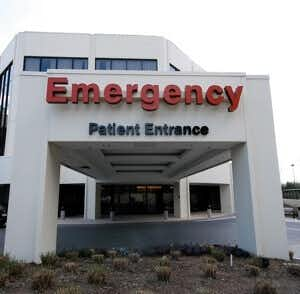
Most people dread a trip to the emergency room. First, there’s the trauma and anxiety of whatever brought them there–chest pain, uncontrolled bleeding or perhaps a broken bone. Then there’s the ordeal of a waiting room full of other sick people, some of whom are likely to be in much worse shape. Many could be contagious. And finally, there’s the waiting. Unless the problem is a heart attack or stroke, many hours can go by before they are seen by a physician.
With such hurdles, it’s no wonder most folks do their best to avoid the emergency department (ED). But according to a new report, more than 700,000 people make this frightening trip each year because of bad drug reactions (JAMA, Oct. 18, 2006)
They were not junkies overdosing on heroin. These patients were having trouble with medicines like the anticoagulant Coumadin (warfarin), the heart medicine Lanoxin (digoxin), the antibiotic amoxicillin or insulin to control blood sugar.
This surveillance program is a unique collaboration among the FDA, the CDC (Centers for Disease Control and Prevention) and the Consumer Product Safety Commission. Researchers reviewed patient records in hospital emergency departments to identify cases.
Since many adverse drug reactions are misdiagnosed, or never even reported by the patient, the investigators suggest that 700,000 is likely to be a conservative estimate for serious drug side effects.
People over 65 years old were far more likely to experience such reactions. This group represents only 12 percent of the US population, but reported one fourth of the drug-related ED visits and more than half of the resulting hospitalizations.
One of the most surprising results of this study was that old familiar drugs accounted for the vast majority of problems. Although great public attention has been focused on the dangers of newer medicines such as Vioxx, this research suggests that some of the worst offenders have been on the market for decades.
Perhaps physicians take such drugs for granted and forget to provide careful dosing instructions. Unintentional overdoses accounted for a third of the visits to the ED. Patients also need guidance on early warning signs that would allow them address problems before they become emergencies.
America has become a pill-popping society. In 2004, four out of five citizens reported taking at least one prescription drug, over-the-counter medicine or dietary supplement in the preceding week. According to the article in JAMA, “30% reported using 5 or more of these drugs.”
With so many people taking so many different medicines, it is hardly any wonder that adverse drug reactions have become one of our most common health problems. Millions of people are hospitalized each year because the drugs that are supposed to help have instead caused harm.
To keep that from happening to you or someone you love, make sure that you have all the necessary information about taking medicine safely.

